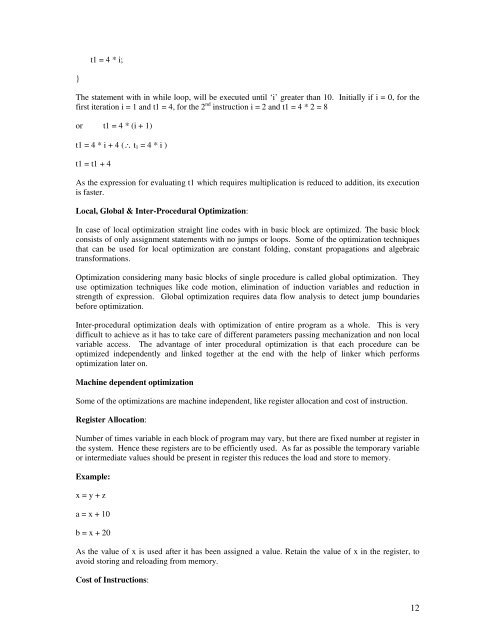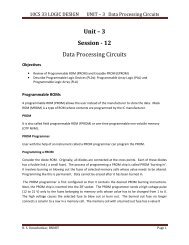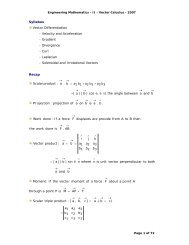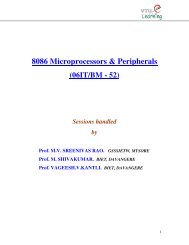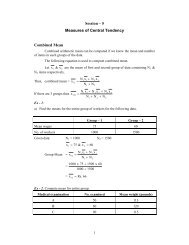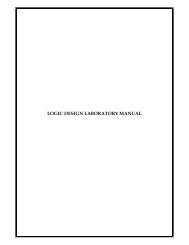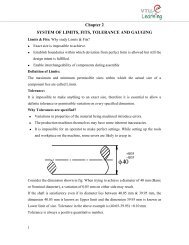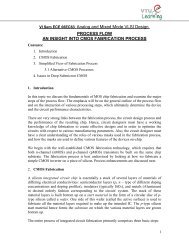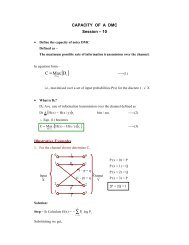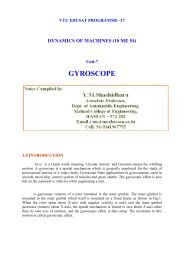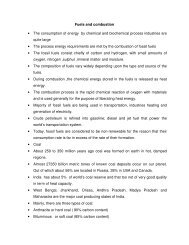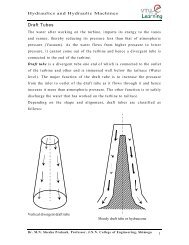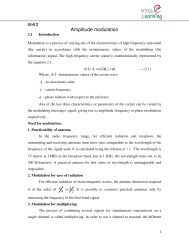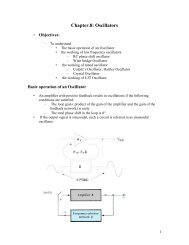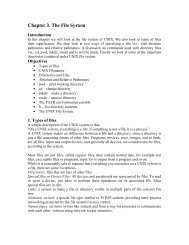1 Code Generation Code generator phase ... - VTU e-Learning
1 Code Generation Code generator phase ... - VTU e-Learning
1 Code Generation Code generator phase ... - VTU e-Learning
You also want an ePaper? Increase the reach of your titles
YUMPU automatically turns print PDFs into web optimized ePapers that Google loves.
}<br />
t1 = 4 * i;<br />
The statement with in while loop, will be executed until ‘i’ greater than 10. Initially if i = 0, for the<br />
first iteration i = 1 and t1 = 4, for the 2 nd instruction i = 2 and t1 = 4 * 2 = 8<br />
or t1 = 4 * (i + 1)<br />
t1 = 4 * i + 4 (∴ t1 = 4 * i )<br />
t1 = t1 + 4<br />
As the expression for evaluating t1 which requires multiplication is reduced to addition, its execution<br />
is faster.<br />
Local, Global & Inter-Procedural Optimization:<br />
In case of local optimization straight line codes with in basic block are optimized. The basic block<br />
consists of only assignment statements with no jumps or loops. Some of the optimization techniques<br />
that can be used for local optimization are constant folding, constant propagations and algebraic<br />
transformations.<br />
Optimization considering many basic blocks of single procedure is called global optimization. They<br />
use optimization techniques like code motion, elimination of induction variables and reduction in<br />
strength of expression. Global optimization requires data flow analysis to detect jump boundaries<br />
before optimization.<br />
Inter-procedural optimization deals with optimization of entire program as a whole. This is very<br />
difficult to achieve as it has to take care of different parameters passing mechanization and non local<br />
variable access. The advantage of inter procedural optimization is that each procedure can be<br />
optimized independently and linked together at the end with the help of linker which performs<br />
optimization later on.<br />
Machine dependent optimization<br />
Some of the optimizations are machine independent, like register allocation and cost of instruction.<br />
Register Allocation:<br />
Number of times variable in each block of program may vary, but there are fixed number at register in<br />
the system. Hence these registers are to be efficiently used. As far as possible the temporary variable<br />
or intermediate values should be present in register this reduces the load and store to memory.<br />
Example:<br />
x = y + z<br />
a = x + 10<br />
b = x + 20<br />
As the value of x is used after it has been assigned a value. Retain the value of x in the register, to<br />
avoid storing and reloading from memory.<br />
Cost of Instructions:<br />
12


